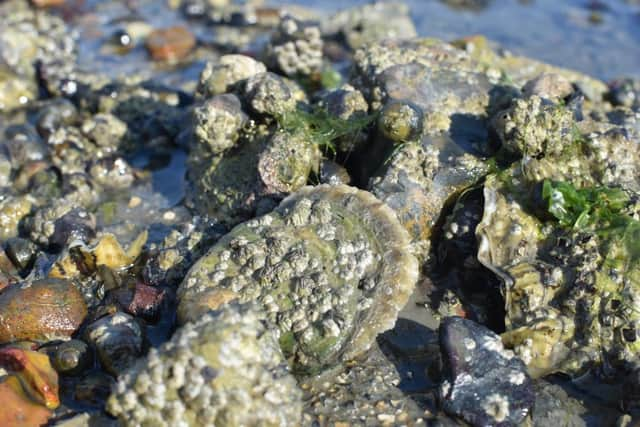New health risks for sea users and shellfish as climate change drives spread of harmful marine bacteria
Warming waters are causing a "growing diversity" of potentially lethal Vibrio bacteria around the UK, according to researchers at the University of Exeter.
Studies carried out in the south of England have found two species – Vibrio rotiferianus and Vibrio jasicida – that had never before been recorded in UK waters.
Advertisement
Hide AdAdvertisement
Hide AdThe microorganisms can harm sea creatures such as shellfish but also pose dangers to human health.


Some Vibrio bacteria can cause serious food poisoning when eaten in raw or undercooked shellfish, potentially leading to hospitalisation.
They can also lead to severe skin infections, which can become the ”flesh-eating” bug necrotising fasciitis.
The researchers say the spread of the bacteria species is driving a "worldwide surge" of Vibriosis infections in people and aquatic creatures.
“Vibrio species can often be found in UK waters in summer, when temperatures are more favourable for them," said Dr Sariqa Wagley, of the University of Exeter.
"With sea-surface temperatures rising due to climate change, Vibrio activity in the waters is more common and the diversity of Vibrio species is now increasing."
The study used Met Office data to identify locations where summer sea-surface temperatures were suited to Vibrio bacteria, based on the average number of days when warmer than 18°C.
Researchers then analysed shellfish samples from four sites used by the UK shellfish industry – Chichester Harbour, Osea Island, Whitstable Bay and Lyme Bay.
Advertisement
Hide AdAdvertisement
Hide Ad“We found Vibrio parahaemolyticus, the leading cause of seafood-borne gastroenteritis worldwide, at Chichester Harbour," Dr Wagley said.
“Vibrio alginolyticus, which can also cause illness in humans, was identified at three of the sites that had sea-surface temperatures above 18°C – Chichester Harbour, Osea Island and Whitstable Bay.
“It is important to note that thorough cooking kills harmful Vibrio bacteria in seafood.
“However, increasing abundance and diversity of Vibrio bacteria creates health risks not only for people eating seafood, but for those using the sea for recreation purposes – either due to swallowing infected seawater or from the bacteria entering exposed wounds or cuts.
“Vibrio bacteria are also a threat to a variety of marine species, including shellfish themselves.
“Disease costs the global aquaculture industry £6 billion a year, and this burden of disease can be devastating.
"We have not seen mass mortality of shellfish due to Vibrio bacteria here in the UK yet, but this has occurred elsewhere, including in France and Australia."
Dr Luke Helmer, from the Blue Marine Foundation and the University of Portsmouth, added: “The impacts of climate change on the marine environment are likely to be widespread.
Advertisement
Hide AdAdvertisement
Hide Ad"Understanding how these changes will affect ecologically and commercially important species and the people that rely on them will be crucial moving forward, in order to mitigate against them."
The study, published in the journal Water Research, was funded by Biotechnology and Biological Sciences Research Council (BBSRC) and supported by Chichester and Havant Council and Sussex Inshore Fisheries and Conservation Authority.
A message from the Editor:
Thank you for reading this article. We're more reliant on your support than ever as the shift in consumer habits brought about by coronavirus impacts our advertisers.
If you haven't already, please consider supporting our trusted, fact-checked journalism by taking out a digital subscription.
Comments
Want to join the conversation? Please or to comment on this article.
